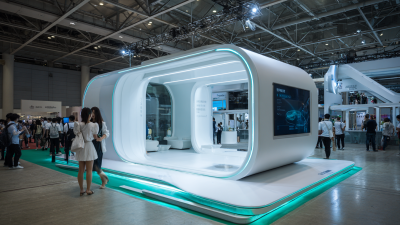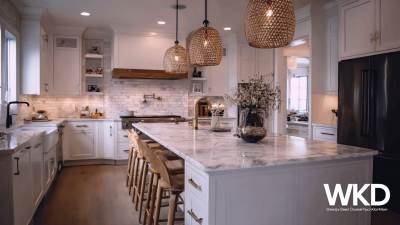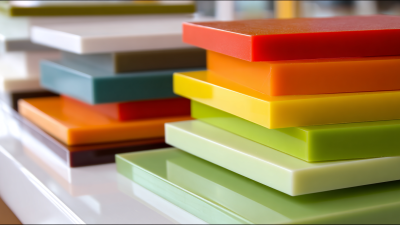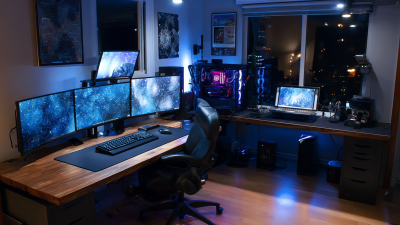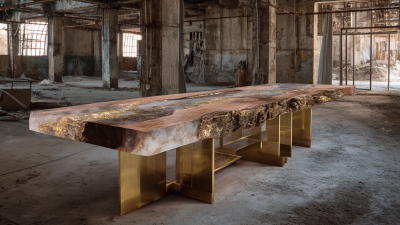Creating your ideal personal space is essential for enhancing focus and relaxation in today’s fast-paced world. According to a report by the Environmental Protection Agency, individuals spend approximately 90% of their time indoors, making the quality of our personal space crucial for mental well-being and productivity. Moreover, research from the Journal of Environmental Psychology shows that a well-designed personal space can improve cognitive function, leading to a 25% increase in focus and a 30% reduction in stress levels. As we navigate various commitments, from professional to personal, curating a personal space that promotes tranquility and efficiency is not just a luxury but a necessity. By harnessing the power of our environment, we can better manage our emotions and optimize our performance in both work and leisure activities.

Creating an ideal personal space is crucial for enhancing focus and promoting relaxation. Research indicates that a well-designed personal environment can significantly influence cognitive function and emotional well-being. According to a report by the Environmental Protection Agency, Americans spend approximately 90% of their time indoors, highlighting the importance of creating an atmosphere that fosters productivity and serenity. A 2021 survey by the International Interior Design Association found that 75% of professionals reported improved concentration and mood when working in spaces designed with personal preferences in mind.
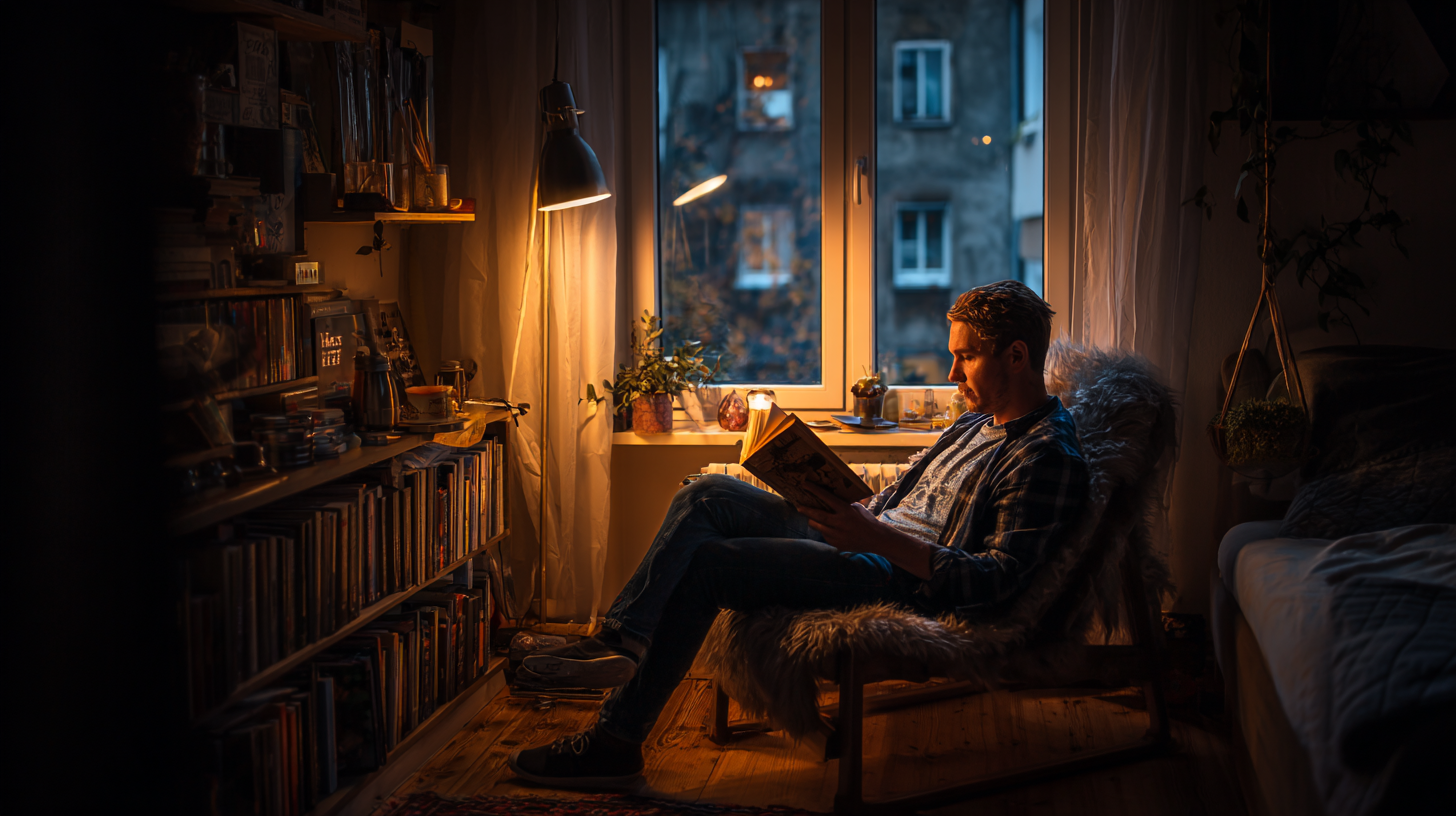
The psychological significance of personal space cannot be overstated. Studies have shown that environments tailored to individual tastes and needs can reduce stress and anxiety levels. The Journal of Environmental Psychology published findings suggesting that elements like natural light, plants, and comfortable furniture can enhance cognitive performance by up to 25%. Furthermore, an engaging personal space that encourages relaxation can facilitate mental recovery from daily stress, enabling individuals to return to tasks with renewed focus and creativity. Crafting a personal oasis, therefore, is not merely a luxury; it is essential for maintaining optimal mental and emotional health.
Creating your ideal personal space involves identifying several key elements that significantly contribute to an environment conducive to focus and relaxation. First and foremost, lighting plays a crucial role; natural light is preferred for its ability to enhance mood and energy levels, while adjustable artificial lighting can help set the right ambiance for different tasks. Incorporating dimmable lamps or soft LED lights can facilitate a soothing atmosphere in the evenings while ensuring adequate brightness during the day.
Another essential element is the arrangement and choice of furniture. Ergonomic chairs and desks can boost productivity and comfort, transforming your workspace into a haven for concentration. Additionally, personal touches such as plants, artwork, or meaningful decor items can create a sense of belonging and motivation. The use of color also matters; calming shades like blues and greens can promote relaxation, while warmer tones can energize the space. By thoughtfully considering these elements, you can cultivate a personal environment that harmonizes focus and relaxation, allowing for a balanced and productive lifestyle.
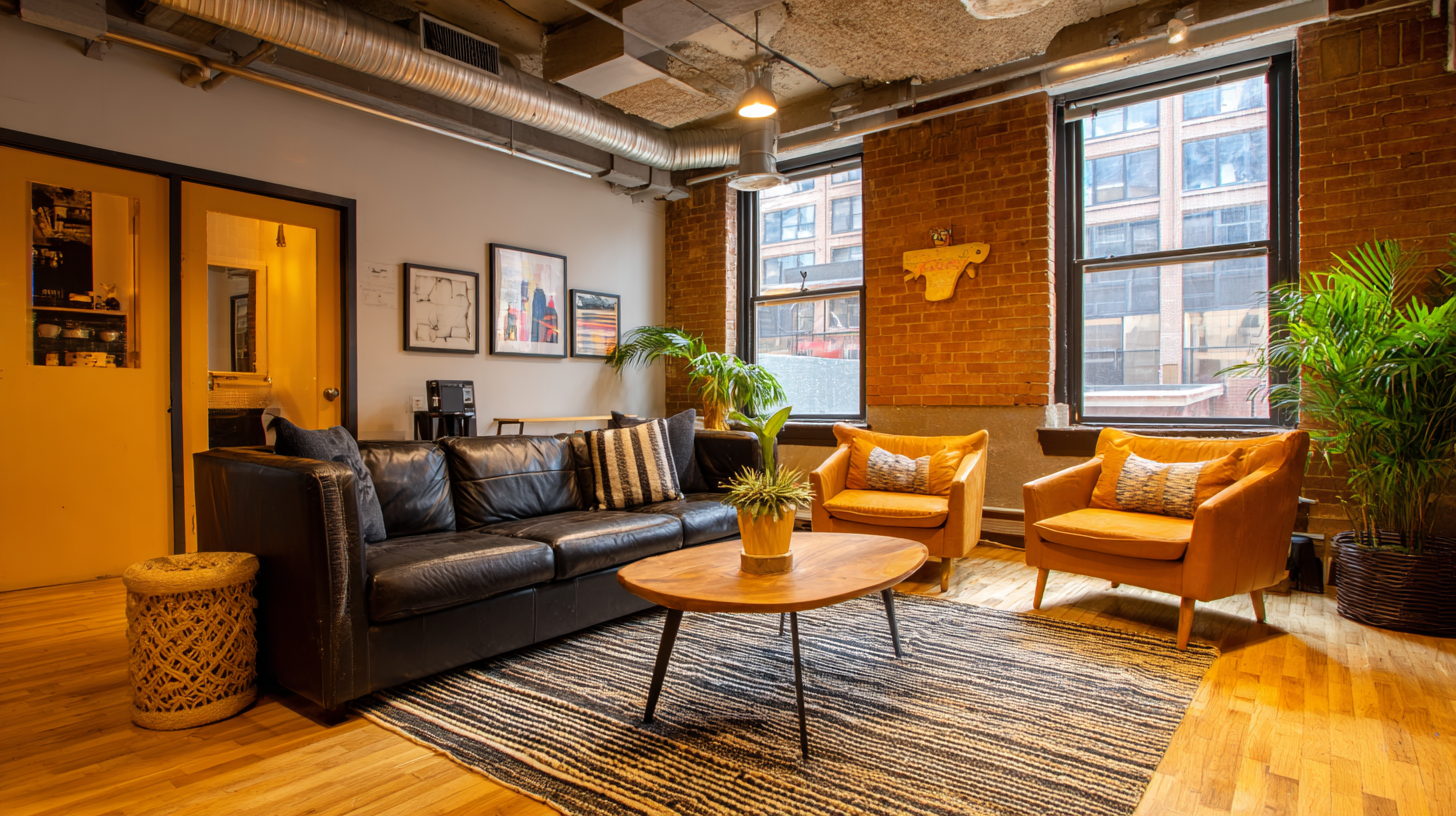
Creating an ideal personal space that enhances focus and relaxation hinges on intentional design choices. According to a recent report from the World Health Organization, our environments significantly affect mental well-being, with poor design leading to increased levels of stress and anxiety. By integrating elements such as natural light, greenery, and ergonomic furniture, individuals can transform their surroundings into sanctuaries that promote calmness and concentration. For example, studies have shown that plants in workspaces can improve mood and productivity by up to 15%.
Moreover, the layout of a space matters in facilitating focused work. Research indicates that open spaces can enhance collaboration, but dedicated quiet zones are essential for deep work. Creating zones within the same area allows for both interaction and concentration, fulfilling varied needs in a single environment. Including features like noise-dampening materials and adjustable lighting can further cater to personal preferences and enhance overall productivity, making the space not just a place to work, but a personal refuge tailored for optimal performance and well-being.
Creating a personal space that fosters both focus and relaxation can be greatly enhanced by incorporating elements of nature. Recent studies emphasize the importance of exposure to natural environments in alleviating symptoms of depression and anxiety. Outdoor activities and forest therapy, for instance, have been shown to reduce negative emotions and promote mental well-being. By integrating natural elements into our personal spaces, we can create an oasis of tranquility that aids in stress relief.
To achieve this, consider adding houseplants or nature-inspired decor that reflect the calming aspects of the outdoors. The presence of greenery not only beautifies the space but also purifies the air, which can enhance cognitive function and focus. Additionally, incorporating natural light, soothing colors, and natural textures in furniture design can further elevate the sense of peace and mindfulness within your environment. Engaging with these elements invites the restorative qualities of nature into your daily routine, making your personal space a sanctuary for both relaxation and productivity.
Personalization is key when it comes to creating an ideal personal space that fosters both focus and relaxation. By curating an environment that reflects individual preferences, you can significantly enhance your well-being and productivity. This might include choosing a color palette that resonates with you—soft blues and greens can promote calmness, while vibrant yellows or oranges may energize your mood. Incorporating personal elements, such as photos, artwork, or plants, can also instill a sense of comfort and inspiration, transforming a sterile space into a sanctuary that feels uniquely yours.
Moreover, the arrangement of your personal space plays a crucial role in its effectiveness. Consider the placement of your furniture and the accessibility of your materials. A clutter-free desk, equipped with only essential items, can reduce distractions and promote concentration. Creating zones within your space—one for work and another for relaxation—allows for a seamless transition between productivity and unwind time. Ultimately, the more aligned your environment is with your personal tastes and needs, the more conducive it will be to enhancing focus and relaxation.
| Dimension | Description | Impact on Focus | Impact on Relaxation |
|---|---|---|---|
| Lighting | Natural light or soft artificial lighting enhances mood and productivity. | High | Moderate |
| Color Scheme | Cool colors like blue promote calmness; warm colors energize. | Moderate | High |
| Furniture Comfort | Ergonomic chairs and desks enhance posture and comfort. | High | Moderate |
| Personal Items | Incorporating photos, art, or quotes that inspire you. | High | High |
| Noise Control | Using soundproofing or soft background music to reduce distractions. | High | Moderate |
